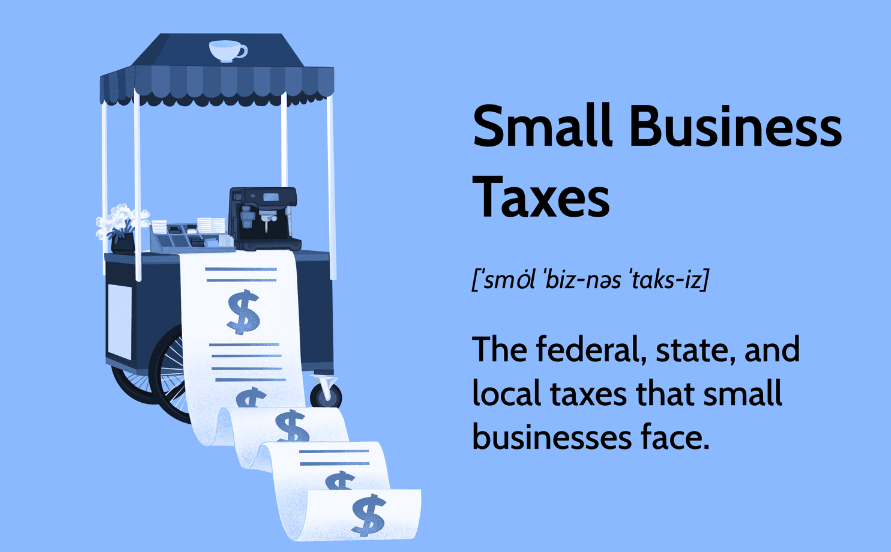Lee County tangible business tax is a local tax that businesses in the area must pay for the physical property they own, such as equipment, furniture, and machinery. This tax is different from other taxes because it focuses only on the tangible assets your business uses to operate, not on the income or profits you make. As a business owner in Lee County, it’s important to understand how this tax works, so you don’t end up overpaying or missing out on possible savings.
Many local business owners overlook the importance of managing their tangible business tax properly. Lee County tangible business tax can have a significant impact on your financial planning, and if you’re not careful, you might be leaving money on the table. In this guide, we’ll break down what this tax is, how it’s calculated, and tips on how to stay compliant while making the most of any available tax breaks.
How to Calculate Lee County Tangible Business Tax: A Step-by-Step Guide
Calculating Lee County tangible business tax might sound tricky, but it’s actually a straightforward process if you know what to do. First, you need to determine the value of the tangible assets your business owns. This includes everything from computers to office furniture to industrial machinery.
Once you know the value of your property, you can use the county’s established tax rate to calculate the amount you owe. The county’s tax office usually provides a schedule with tax rates based on asset value, so you can easily figure out how much you need to pay. Keeping accurate records of all your assets is key to making sure the calculation is correct and you don’t miss any potential deductions.
When it comes to Lee County tangible business tax, many business owners make some common mistakes. One of the most frequent mistakes is failing to report all of their assets. If you leave out any items that should be taxed, you could face penalties or an audit.
Another mistake is not keeping good records of your assets. Without detailed records, you may have trouble proving the value of your property or justifying your tax bill if questioned. Make sure to track everything carefully and keep your records organized to avoid issues down the road.
How to Lower Your Lee County Tangible Business Tax Liability
There are a few ways to lower your Lee County tangible business tax liability. One of the easiest methods is to take advantage of any available exemptions. For example, some small businesses may qualify for exemptions based on their type of business or the nature of their assets. It’s important to check with the county’s tax office to see if you qualify.
Another way to reduce your tax liability is by properly depreciating your assets. Depreciation reduces the taxable value of your property over time, which can lead to lower taxes. Work with a CPA or tax professional to ensure that you’re applying depreciation correctly and taking advantage of all possible savings.
The Importance of Accurate Reporting for Lee County Tangible Business Tax

Accurate reporting of your assets is crucial when dealing with Lee County tangible business tax. Failing to report items correctly can lead to audits, penalties, and missed opportunities for deductions. The county uses the information you report to assess your tax bill, so it’s important to provide truthful and thorough details.
When reporting, make sure to list every tangible asset your business owns, including furniture, machines, and computers. This ensures that you aren’t underreporting and risking penalties. Keep receipts and invoices for all purchases, and ensure you update your asset list as you add or remove items.
Lee County Tangible Business Tax vs. Other Local Taxes: What’s the Difference?
There are several types of taxes that businesses must pay, and it’s important to understand how Lee County tangible business tax differs from others. The main difference is that tangible business tax is only based on the physical property you own. Other local taxes, such as sales tax or income tax, are based on your earnings or sales volume.
Understanding these differences helps you manage your taxes more effectively. For example, while tangible business tax focuses on your assets, income tax is about your business’s earnings. You need to track both types of taxes carefully to ensure you’re complying with all local tax laws.
Key Differences Between Lee County Tangible Business Tax and Sales Tax
- Tangible business tax is based on physical assets owned by your business.
- Sales tax is charged on the sale of goods or services.
- Tangible business tax applies to local businesses, while sales tax affects all businesses making sales in the area.
- Sales tax is collected from customers, while tangible business tax is directly paid by business owners.
How Lee County Tangible Business Tax Impacts Small Business Owners

Lee County tangible business tax has a direct impact on small business owners, especially when it comes to managing expenses. For small businesses, every dollar counts, and paying a large amount in tangible business tax can strain your finances. Understanding how the tax works and how to manage it can help you keep more money in your business.
Small business owners can also benefit from understanding any available exemptions or reductions in tax liability. Certain types of businesses or assets may qualify for lower rates or exemptions, which can save money. Consulting with a tax expert can help you navigate these options and make sure you’re paying the correct amount.
Tax Deductions You Might Be Missing for Lee County Tangible Business Tax
Many business owners fail to take full advantage of the available tax deductions for Lee County tangible business tax. Deductions can significantly lower your taxable value, reducing the amount of tax you owe. For example, you may be able to deduct the cost of equipment purchases or the depreciation of your assets over time.
It’s important to keep records of all expenses related to your tangible property and work with a tax professional to ensure you’re applying the correct deductions. By doing so, you can lower your overall tax burden and maximize the savings for your business.
Conclusion
Understanding Lee County tangible business tax is important for every business owner in the area. By knowing how this tax works and how to manage it, you can avoid overpaying and make sure you’re following the rules. Remember, keeping track of your assets and reporting them correctly can save you money and prevent problems in the future.
If you’re unsure about anything, don’t hesitate to ask a tax professional for help. They can guide you through the process and make sure you’re paying the right amount. By remaining coordinated and informed, you can zero in on developing your business without agonizing over surprising assessment issues.


